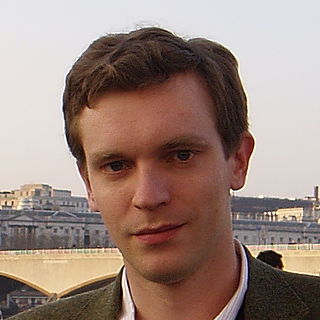A Quote by Jonathan Swift
I have always a sacred veneration for anyone I observe to be a little out of repair in his person, as supposing him either a poet or a philosopher.
Related Quotes
As a child, he had hardened his heart and learned to take their punches. He had learned to spit back and take down anyone who cast a jaundiced eye or who made a comment about either him, his mother, or his sister. He’d told himself that he didn’t need anyone’s love or caring. And so he had learned to live like a feral animal, always ready to strike out when someone tried to touch him.
"You cannot believe what you are saying." "Well, no. Hardly ever. But the philosopher is like the poet. The latter composes ideal letters for an ideal nymph, only to plumb with his words the depths of passion. The philosopher tests the coldness of his gaze, to see how far he can undermine the fortress of bigotry."
A person is either himself or not himself; is either rooted in his existence or is a fabrication; has either found his humanhood or is still playing with masks and roles and status symbols. And nobody is more aware of this difference (although unconsciously) than a child. Only an authentic person can evoke a good response in the core of the other person; only person is resonant to person.
He was not such a special person. He loved to read very much, and also to write. He was a poet, and he exhibited me many of his poems. I remember many of them. They were silly, you could say, and about love. He was always in his room writing those things, and never with people. I used to tell him, What good is all that love doing on paper? I said, Let love write on you for a little. But he was so stubborn. Or perhaps he was only timid.
Some souls think that the Holy Spirit is very far away, far, far, up above. Actually he is, we might say, the divine Person who is most closely present to the creature. He accompanies him everywhere. He penetrates him with himself. He calls him, he protects him. He makes of him his living temple. He defends him. He helps him. He guards him from all his enemies. He is closer to him than his own soul. All the good a soul accomplishes, it carries out under his inspiration, in his light, by his grace and his help.




































